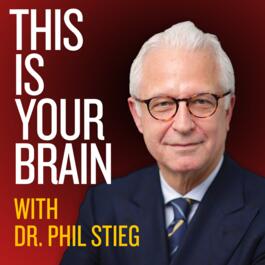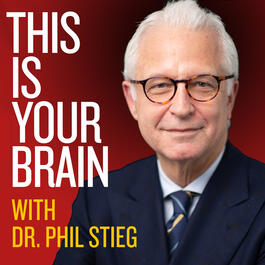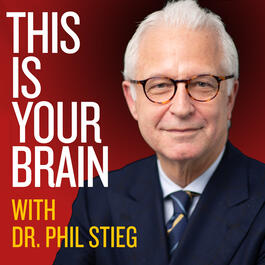
This Is Your Brain With Dr. Phil Stieg
This Is Your Brain With Dr. Phil Stieg provides a fascinating look into the human brain, with each episode asking new questions — and finding new answers — about our most mysterious organ. Together with his expert guests, Dr. Stieg takes us on a journey that reveals unexpected secrets at every turn, and redefines what we know about ourselves and our place in the world. The podcast explores the many fascinating aspects of neuroscience, ranging from how the brain is wired for both sudden bursts of violence and the pervasive inner calm of meditation. Where does confidence come from? How do we remember traumatic events – or do we? How do other animals experience consciousness? Does storytelling change our brains? Take the journey with us as we explore the very foundation of what makes us human.
Show episodes
We all know that exercise is good for our bodies, but do our brains benefit as well? In our next episode Dr. Gary Wenk of the Ohio State University reveals exactly how our muscles communicate with our brains when we work out, and why exercise is so important to our mental health. Plus – how our brain chemistry e
Until the death of actor Matthew Perry many people had never even heard of Ketamine. As a recreational drug, known as "Special K", it can be extremely addictive and dangerous. But, when used under supervision, this powerful drug can help people with depression and various other mental health issues. Dr. John Krystal
Following the 2023 death of actor Matthew Perry, more people have become aware of Ketamine, also known as "Special K", a popular but very dangerous party drug. But few people know about the other side of the story, that Ketamine, which, when used properly, is one of the most effective tools in treating severe depressio
At age 70, after a long career as a neurosurgeon and best-selling author, the tables were turned on Dr. Henry Marsh. Diagnosed with cancer, and facing his own mortality, Marsh offers a humble and honest look at what it was like when a prominent doctor becomes a patient; just as scared and dependent as anyone of us woul
Dr. Henry Marsh is a brain surgeon who suddenly found himself on the other side of a life-threatening diagnosis. He doesn't shy away from the revealing his deepest emotions of anger, fear, and remorse. Rather than reflection on dying, his story is more about sharing the hard-earned lessons he learned along the way abo
Have you ever felt the type of grief where it seemed like you would never recover, like your heart was actually broken? Whether it's a member of your family, a friend or a beloved pet, all of us will experience the loss of a loved one, and the deep and difficult emotions that follow. One of the reasons grief can be

